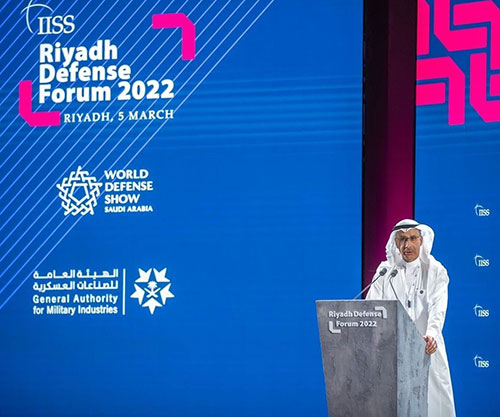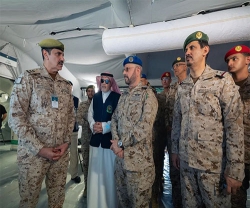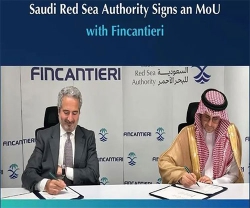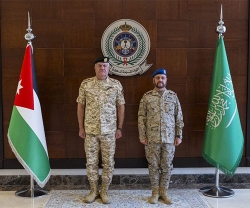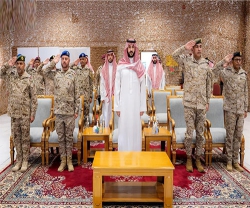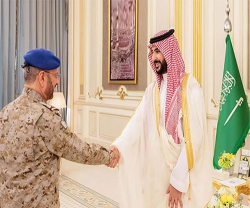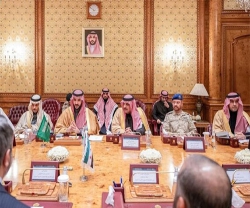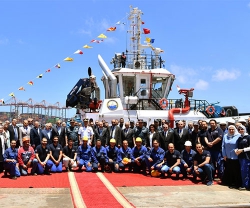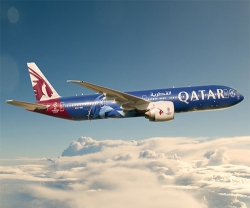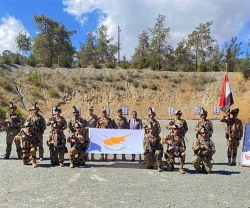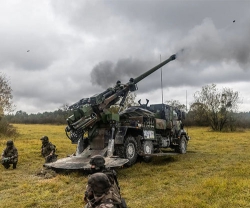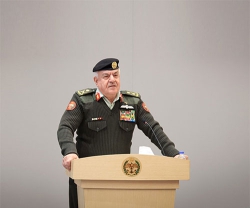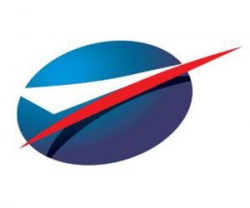High inflation and constrained fiscal conditions since 2017 have dampened Middle Eastern spending on defense. Constraints on investment in defense R&D and a reliance on foreign partners have hindered the region’s ambitions to respond to advances in military technology and changes to its threat landscape.
This is according to a new and independent assessment from the International Institute for Strategic Studies (IISS) on defense transformation policy in the Middle East, presented at the IISS Riyadh Defense Forum, held on 05 March 022 ahead of the World Defense Show currently taking place in Saudi Arabia (06-09 March).
The IISS Riyadh Defense Forum is a new event attracting senior leaders in government and business from over 25 countries.
Emile Hokayem, IISS Senior Fellow for Middle East Security, said at the Forum: “The drivers of defense transformation in the Middle East are numerous and are a complex mix of military factors and strategic and political preferences.”
He noted the Middle East’s prioritization of air defense and air capabilities, reduced emphasis on ground capabilities, increased attention to critical infrastructure protection and continued attention to armed non-state actors.
“Despite intense rivalries in the region, states prefer to avoid direct state-level military engagements because of escalation concerns, defensive vulnerabilities and limited power projection capabilities. We have instead seen a continued emphasis on grey zone and proxy competition between states.”
“The rise of airborne attacks in the Middle East has also become a prominent feature of the threat landscape. The proliferation of missile and UAV technology to armed non-state actors and Iran's rich inventory of advanced capabilities now rank among the top threats to regional stability,” Hokayem added.
The IISS researchers noted that many countries in the Middle East will need to increase defense investment in R&D to meet policy needs.
Fenella McGerty, IISS Senior Fellow for Defense Economics, commented: “While regional defense spending accounts for between 8-10% of the global total, the Middle East has in recent years been the destination of up to 25% of global defense exports. The region is therefore a key export market that is now increasingly seeking to develop domestic capabilities. An impediment to this development is that investment in R&D is too low. Without significant increases from the current estimated level of 1% of defense budgets, regional defense industrial goals will be beyond reach.”
As in other countries around the world, inflation has affected defense spending in the Middle East. Since 2017, regional spending has been effectively flat in nominal terms but with rates of inflation averaging 7%, real reductions have reached 3.6% annually. Nonetheless, regional spending is still 42% higher in real terms compared to 2008 levels.
“With strategic drivers and modernization requirements remaining in place, the easing of economic constraints should enable regional defense spending to stabilize. The higher oil price projection for 2022 will mean more countries in the region are able to balance their budget and begin closing fiscal deficits,” McGerty continued.
“Meanwhile, foreign governments will have to recognize the need to allow countries to develop or manufacture equipment under license if they wish to retain their influence. Should they fail to do so other countries, such as China or Turkey, will move to fill the vacuum,” she stressed.
The International Institute for Strategic Studies (IISS) is the leading global authority on geopolitics and strategy. The ISSS generates facts, produces analysis, and exerts influence on matters of war, power and rules for governments, the private sector and the expert community worldwide. Founded in 1958 and fully independent, the IISS is known around the world for its authoritative research, publications and products, such as The Military Balance and Military Balance+.
The IISS is also the convenor of major defense summits, including the IISS Shangri-La Dialogue (The Asian Regional Security Summit), which convenes in Singapore each year, and the IISS Manama Dialogue (The Middle East Regional Security Summit). The IISS has offices in Bahrain, Berlin, London, Singapore and Washington DC.

